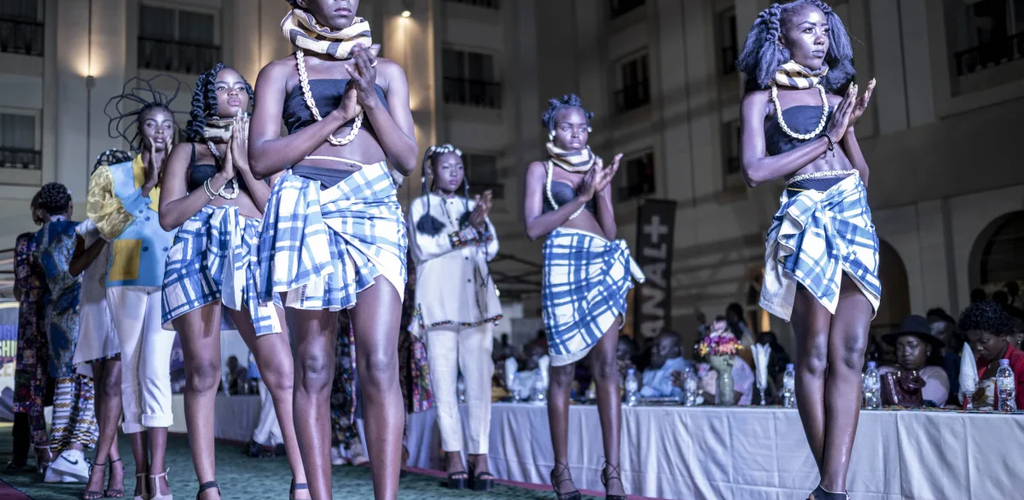As Africa’s fashion industry continues to make waves, it still suffers from a lack of investment.
In a dimly lit room, a group of young men and women confidently strut along a brightly illuminated walkway, showcasing the latest and most innovative fashion creations. This captivating scene unfolded during Lagos Fashion Week in late October, captivating fashion enthusiasts from across Africa and beyond over four bustling days. UNESCO director-general Audrey Azoulay seized the occasion to release her inaugural report, "Africa: A New Global Fashion Leader," affirming the continent's trajectory towards becoming a significant player in the global fashion landscape.
With 32 successful fashion weeks held annually across Africa, including the upcoming Dakar and Accra Fashion Weeks, the continent boasts a vibrant fashion industry valued at $15.5 billion in exports each year. It's a remarkable transformation considering the continent's fashion landscape not long ago.
Watching the models at Lagos Fashion Week is Omoyemi Akerele, the visionary behind the event launched in 2011 to champion Nigerian and African fashion. Reflecting on the evolving trends, Omoyemi remarks, "Africans want to wear Africa. It's really beautiful to see because it hasn't always been like this." Indeed, a decade later, African fashion is highly coveted.
In the early 21st century, African fashion faced challenges amidst increasing globalization, with Western styles overshadowing traditional African fabrics and patterns, raising concerns about cultural erosion. However, there has been a notable reversal of this trend.
Africa is currently experiencing robust growth, with a youthful population projected to double by 2050. More than a third of the world's young population is expected to reside in Africa by then, fostering a burgeoning consumer appetite for locally made fashion. This demographic shift, coupled with the rise of e-commerce and social media, has provided unprecedented market opportunities for African fashion to gain global exposure.
In Nigeria and across Africa, emerging fashion designers are making significant strides, driven by a growing demand for African-inspired fashion. For consumers, African fashion symbolizes pride and identity, blending tradition, innovation, and sustainability.
However, despite the industry's potential, African fashion faces a significant gap in investment compared to its Western counterparts. While Africa's fashion industry is valued at $31 billion, it represents just 1.2% of the global fashion market. Yet, designers like Ejiro Amos-Tafiri are determined to bridge this gap, using their brands to celebrate African heritage and storytelling.
In essence, African fashion is more than just clothing; it's a vibrant expression of culture and identity, poised to claim its place as the next frontier in the global fashion industry.



